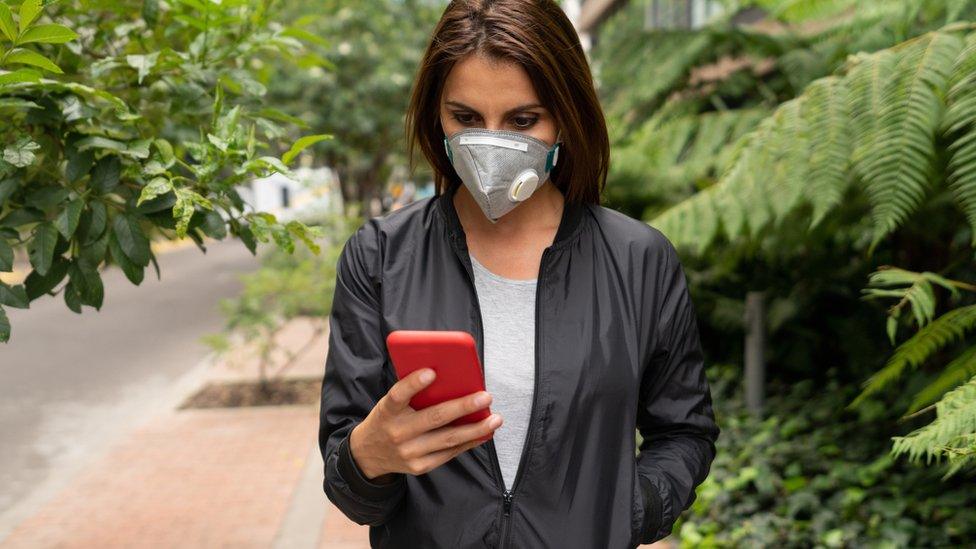Coronavirus: Time short on test, track and trace - NHS leaders
- Published
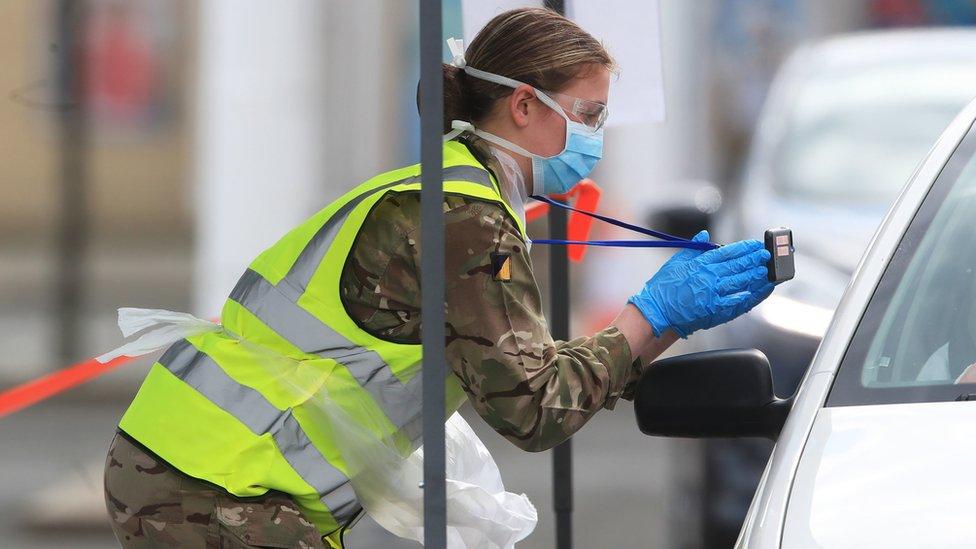
Time is running out to finalise a test, track and trace strategy to avoid a possible second surge in coronavirus cases, NHS bosses have said.
The NHS Confederation warned of "severe" consequences to staff and patients if the right system was not established quickly.
It said lockdown measures should not be eased until a clear plan was in place.
It follows the PM's pledge to introduce a "world-beating" contact tracing system in England from June.
Contact tracing identifies those who may have come into contact with an infected person - either through an app or by phone and email - so they can avoid potentially passing the disease on.
Niall Dickson, chief executive of the confederation, which represents health and care leaders, welcomed Boris Johnson's pledge made at Prime Minister's Questions on Wednesday.
But in a letter to Health Secretary Matt Hancock, external, Mr Dickson said without a clear strategy the UK was at greater risk of a second peak of the virus and emphasised the importance of involving local health organisations in the plan.
He said a test, track and trace strategy should have been in place sooner and if the right system was not instigated rapidly the ramifications for the NHS "could be severe".
Speaking on BBC Radio 4's Today programme, Mr Dickson said: "We are absolutely clear that contact tracing is the right thing to do, it is absolutely critical, it has got to be in place to prevent any notion of a second surge if the lockdown is being further released."
He added the government was acting "quite late in the day [and] we haven't yet seen the detail".
Meanwhile, a further 338 people have died of coronavirus in the UK as of 17:00 BST on Wednesday, the Department of Health said, taking the total to 36,042.
Chris Hopson, chief executive of NHS Providers - a membership group for England's NHS trusts - told BBC Breakfast his members have "not had clear information and instructions about what their role will be" in the system.
Security minister James Brokenshire said Mr Hopson's comments "will not be lost on anyone" at the Department of Health - and will be followed up on "at pace".
Downing Street has confirmed that 24,000 manual contact tracers have been hired, with plans to employ an additional 1,000 people before the test, track and trace scheme starts on 1 June.
The prime minister's official spokesman said "test and trace" would start shortly.
Johnson: "Test, track and trace system in place in the UK by June 1"
On Wednesday, Mr Johnson said 25,000 contact tracers, able to track 10,000 new cases a day, would be in place by 1 June.
It coincides with the earliest possible date for the gradual reopening of schools and non-essential shops in England.
Northern Ireland already has a telephone contact tracing system in place, while the Scottish government is currently trialling one. The Welsh government wants its programme operational by the end of May.
One of the government's most senior scientific advisers previously said an effective tracing system needed to be in place before lockdown restrictions could be changed.

Health leaders not yet reassured

What this letter indicates is that, for all the rhetoric, the NHS Confederation does not yet believe that the government has a robust plan for virus testing and tracking of contacts of those who are infected.
And that comes even after the prime minister's statement that such a programme will be in place by 1 June with 25,000 contact tracers appointed.
A widespread testing and tracing system is seen as a necessity if lockdown restrictions are to be further eased, including the reopening of schools.
The confederation, which represents health leaders and organisations in England, Wales and Northern Ireland, does welcome Mr Johnson's commitment to a testing and tracing programme.
But tellingly it notes that its members are not yet reassured, and that if there is not rapid action there could be a second wave of infections and serious consequences for NHS patients and staff.

Mr Brokenshire said the contact tracing system will be in place on 1 June - with or without an NHS tracing app which will be rolled out "in the coming weeks".
The University of Nottingham's Prof Keith Neal said the app would be most useful if people were out in public at places such as supermarkets.
"That's where the app comes in because it will allow later on to identify who you've been in contact with but don't know their name or phone number," he said.
"We can do contact tracing even without the app because that is a matter of finding the most high-risk contacts in close and prolonged contact, and you tend to only have close and prolonged contact with people you actually know."

'Just sitting on Netflix'
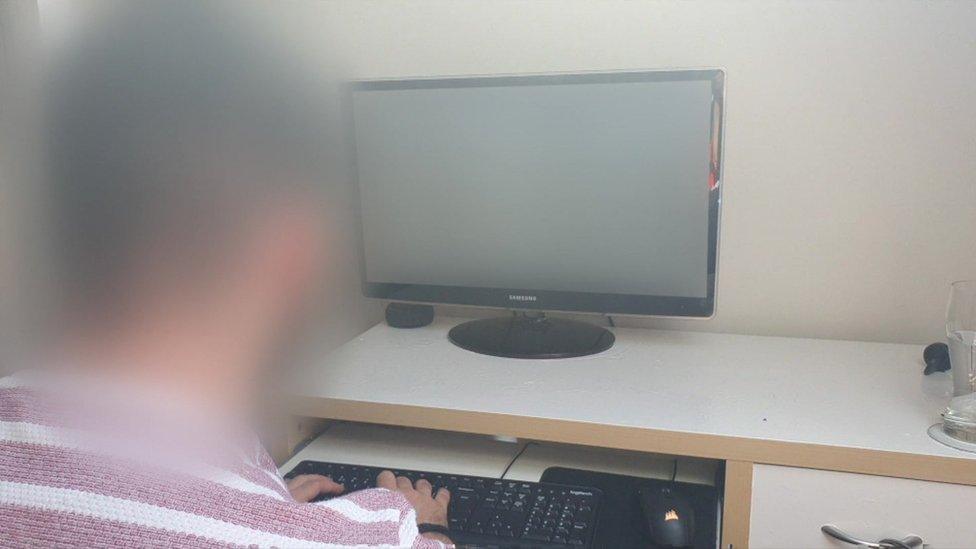
The anonymous contact tracer says he and around "90 odd people" had online training for the role
One newly-hired contact tracer, a graduate who wished to remain anonymous, told the BBC at the moment "it's not very productive at all".
He applied for a job as a "work at home customer service agent", he says - "nothing to do with the NHS".
A few days later he passed the application process and joined an online training session. "Whenever we asked questions he would try but the main answer was 'wait for the coming days, you'll get an email or something'," he says.
He adds the work is "quite boring" as "we're just kind of sat there doing absolutely nothing for the majority of the day".
"Right now, I'm just sat scrolling through Netflix. A lot of people are chilling on games.
"People say we can't complain, we're getting paid, which is very true, but at the same time it's like why would they set us up doing this if we're just sat around waiting."

Contact tracing for coronavirus began when the UK identified its first two cases at the end of January.
But it was stopped in mid-March after England's chief medical officer, Prof Chris Whitty, said it was "no longer necessary for us to identify every case".
On Wednesday, Labour leader Sir Keir Starmer challenged Mr Johnson over that decision, describing it as a "huge hole in our defences".
In response, the prime minister said he was "confident" that England would have a track and trace operation which would allow the country to make "progress".
Contact tracing is already being used in Hong Kong, Singapore and Germany.
On Thursday, the government also announced it had agreed a deal to make antibody tests for the virus available on the NHS.
These tests check if a person has had coronavirus and would be prioritised for NHS and care workers.

HOW A VIRUS SPREADS: An explanation
THE R NUMBER: What it means and why it matters
LOOK-UP TOOL: How many cases in your area?
RECOVERY: How long does it take to get better?
HOW FAST IS THE VIRUS GROWING? The UK spread compared to other countries

The government's surveillance programme shows the number of coronavirus cases in the community has stayed relatively stable with one in 400 people in England infected.
The Office for National Statistics surveyed nearly 15,000 people between 4 and 17 May, finding 0.25% of the participants tested positive for Covid-19 - down from the 0.27% figure last week.
It suggests about 137,000 people in England could currently be infected.

MINDFUL MIX: Calming tracks to help you relax
LOUIS THEROUX: The 15 songs getting him through lockdown
Content available only in the UK

In other developments:
The prime minister is facing a potential rebellion from some Conservative MPs after he rejected calls to scrap the fees overseas health workers have to pay to use the NHS
Schools in Scotland will not reopen until the new school year begins after 11 August, as part of a four-phase "route map" to relax lockdown restrictions
The Welsh government has been reported to the Equality and Human Rights Commission over testing in care homes being "too slow"
Northern Ireland's education minister Peter Weir has said the reopening of schools will begin for "key cohort years" in August, followed by a phased provision for all pupils in September
Crime in England and Wales fell by a quarter in the last four weeks of the lockdown, according to the National Police Chiefs' Council. But domestic abuse incidents rose 4% while assaults on emergency workers went up 14%
Facebook boss Mark Zuckerberg has defended the social media giant's actions on coronavirus misinformation, saying content likely to cause "imminent" harm would be removed
EasyJet will resume a small number of mainly domestic flights from 22 European airports from 15 June, but will require crew and customers to wear masks
And the head of the World Health Organization warned the pandemic was a long way from being over amid the largest daily rise in global cases

Have you applied for contact-tracing jobs? Do you live on the Isle of Wight and use the NHS contact tracing app? Share your experiences by emailing haveyoursay@bbc.co.uk, external.
Please include a contact number if you are willing to speak to a BBC journalist. You can also contact us in the following ways:
WhatsApp: +44 7756 165803
Tweet: @BBC_HaveYourSay, external
Please read our terms & conditions and privacy policy
- Published19 May 2020
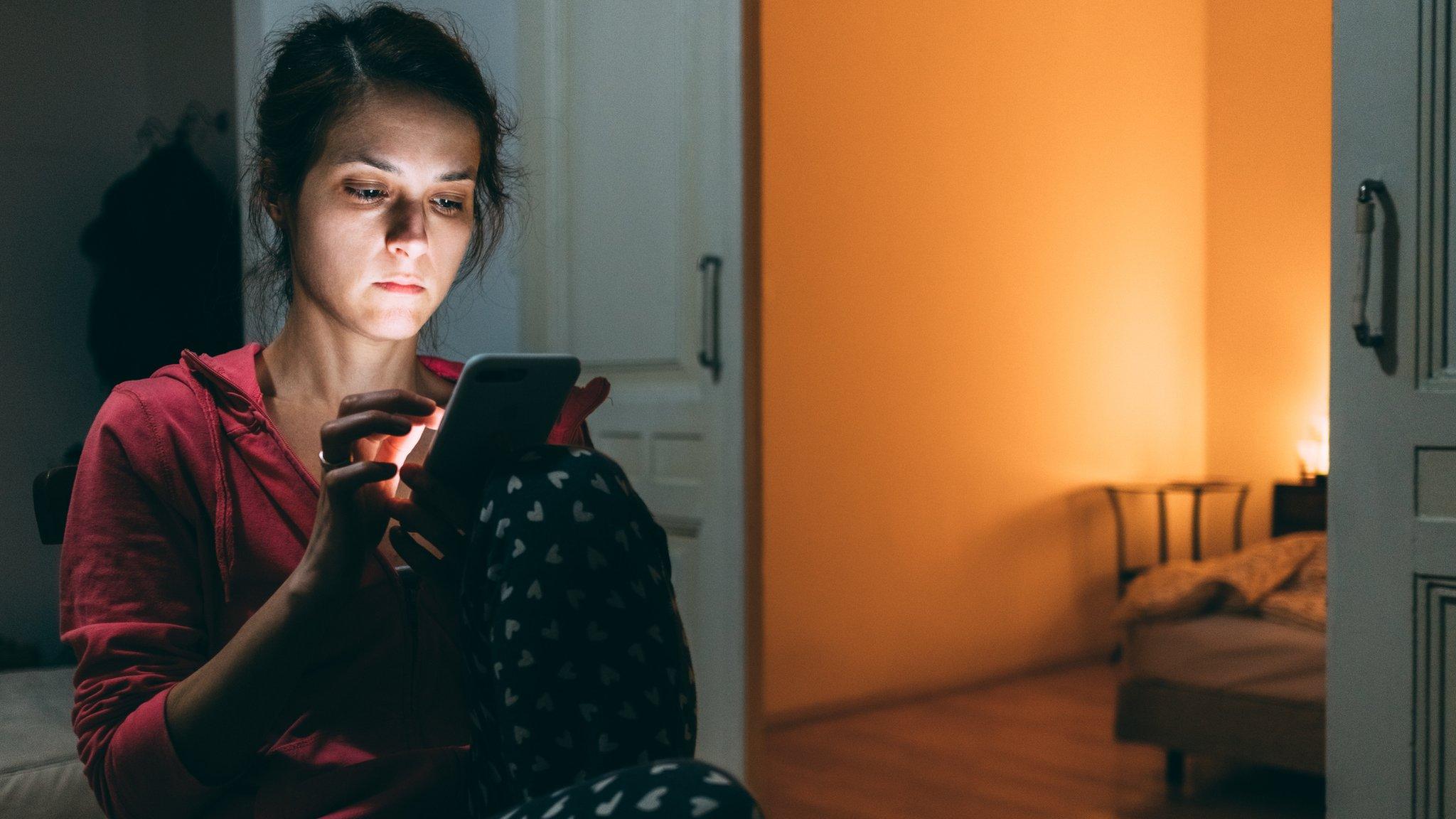
- Published27 October 2020
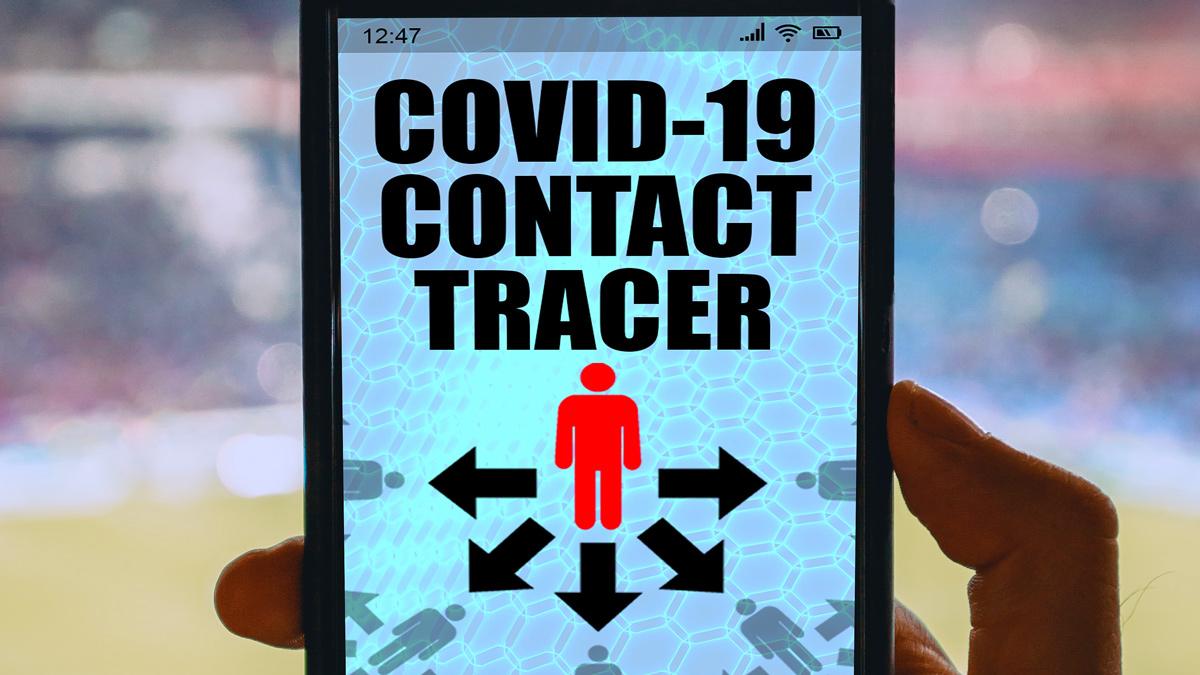
- Published13 May 2020
